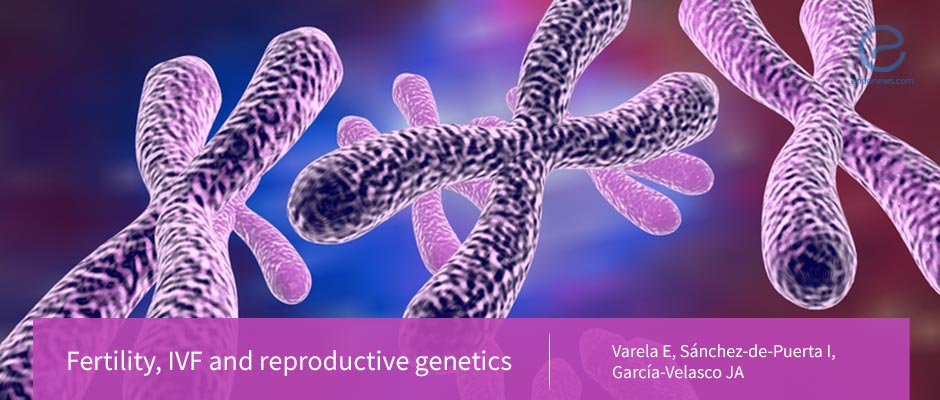Extending the Female Fertility Clock
May 15, 2018
Targeting telomere attrition and telomerase dysfunction may address ovarian aging and female fertility.
Key Points
Highlights:
- This review looks at what is currently known about the impact of telomere biology, namely attrition and dysfunction, has on ovarian aging and female fertility.
Importance:
- In today’s society, women try to delay childbearing, but that can be problematic because of the body’s aging mechanisms. Even Assisted Reproduction Technologies are not able to rejuvenate age-related ovarian damage. Thus, research must elucidate the exact mechanisms of ovarian aging that subsequently lead to infertility or trouble conceiving.
What’s done here?
- This is a review that compiles the author’s knowledge on the subject with relevant literature also pertaining to the subject of interest.
Key points:
- The first section after the introduction discusses the structure of telomeres at length and then proceeds to describe telomerase.
- The next section discusses ovarian aging and the risks it poses with respect to fertility.
- Research has found a link between telomere attrition and infertility or decreased fertility in humans. There is telomerase activity in the ovaries and this also plays a role in female fertility.
- The next section answers the question: is it possible to revert ovarian aging? The authors found that certain studies prove that it may be possible to revert this process. This can be achieved through telomerase reactivation using chemical compounds like TA-65 or sex steroids.
- New research could yield molecular biomarkers that could detect ovarian dysfunction before a complete loss of ovarian reserve.
- The new research could also lead to therapies that will help women with aged ovaries have more successful IVF outcomes.
Limitations in the field:
- There has been great interest in the aging field, but there has not been that much research done on extending the reproductive lifespan.
Lay Summary
Varela, Sanchez-de-Puerta, and Garcia-Velasco are a group of scientists from various institutions in Spain and they recently published a review article titled “Fertility, IVF and reproductive genetics” in Current Opinion in Obstetrics and Gynecology. In this publication, the authors discussed recent research pertaining to the impact telomere biology had on ovarian aging and female fertility. More specifically, the authors looked at telomere shortening, the wearing down of the telomere, and telomere dysfunction.
The researchers dedicated a section of the article for the discussion of telomere structure. In that same section, researchers provided readers with a deeper understanding of the enzyme telomerase.
The next section in the review was dedicated to ovarian aging. The researchers succinctly outlined the process of ovarian aging. Then they highlighted mechanisms that are implicated in ovarian aging. One such mechanism is telomere attrition. Another key part of the ovarian aging and loss of fertility mechanism is telomerase activity. Decreased telomerase activity is associated with increased infertility.
The last major section of the piece answered the question: is it possible to revert ovarian aging? Researchers have found that it may be possible. This goal can be achieved via telomerase reactivation. Telomerase reactivation is a process that can make use of sex steroids and chemical compounds like TA-65.
The progress made in the field may lead researchers to find new molecular biomarkers. These biomarkers could be used to detect ovarian dysfunction prior to complete depletion of the reserve.
The new research could also aid in the search for therapies that could target aged ovaries thus that the patient in question could have more successful IVF outcomes, concluded researchers.
Research Source: https://www.ncbi.nlm.nih.gov/pubmed/29708900
endometriosis fertility IVF ART genetics reproduction telomerase telomeres DNA Ovarian reserve aging biomarkers

